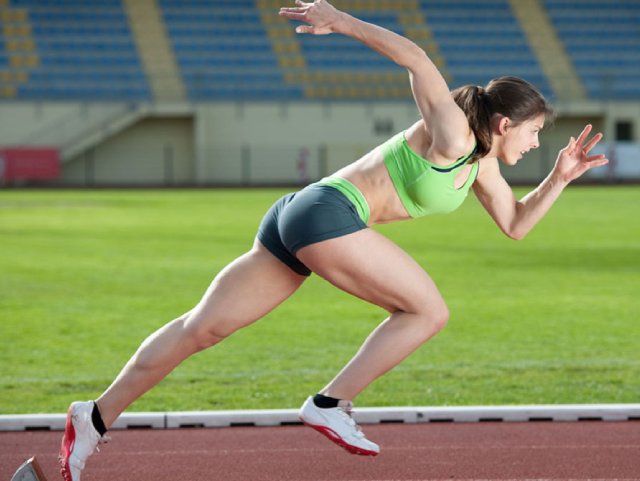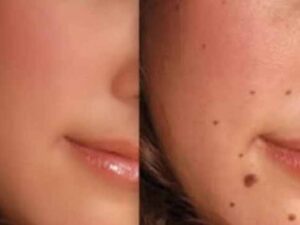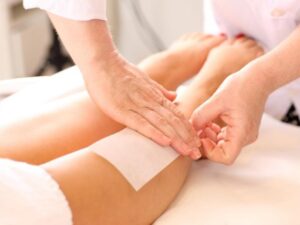Ever noticed how sportstars these days are looking more and more like models and movie stars? How do they manage to look so good despite the sweat, grime and injuries of their sport? Read on to learn more.
Athletes are getting increasingly skin smart. In a profession which includes long hours in the sun or water, excessive sweating and friction, they need to take better care of their skin. Since personal time is sparse owing to rigorous training schedules, his/her skin care regime must be simple, effective and easy-to-carry.
Whether you’re a marathon runner, a swimmer or a skier, sunscreen should be the topmost essential skin care product in your bathroom shelf. A high SPF water resistant sports sunscreen like the Coppertone sports spray is ideal for you on training days. Even a water resistant sunscreen will only last for 80 minutes, so do not forget to reapply. For long hours on the field on a sunny day, I would recommend a zinc oxide containing physical block. Physical sunscreens are also a good option if you have sensitive eyes which burn or water when you use chemical sunscreens. Apply liberally onto the apples of your cheeks, your nose, chin, lips, ears and nape of your neck. It leaves a white film on the skin, but it is far more protective than a chemical sunscreen. Use caps as an added precaution if you are light-skinned. Spritz some thermal spring water like the Vichy Spa water spray to soothe your hot skin. Your lips are more prone to drying and chapping, so use an SPF-containing lip balm like the Sebamed SPF 30 balm. Clinique’s after sun rescue balm with Aloe will soothe a mild sunburn after a long day on the field. Apply a conditioning serum to your hair before you hit the pool. A cap alone is not enough protection for your hair, as chlorinated pool water tends to find its way through the cap.
Physical hygiene should be of utmost importance, especially post work out. Use Triclosan-containing soaps like Cetaphil Soapex for a thorough cleansing without drying out your skin. Wash your hair on a daily basis using the Sebamed anti-dry revitalizing shampoo. Women with light blonde hair have a rough time in the pool, as copper salts in pool water can leave a greenish tinge on your hair. Look for a chelating shampoo in your local salon or pharmacy. A good conditioner will keep your hair healthy and shiny despite frequent washing. Apply moisturizing lotions soon after you towel dry. Dust your groin and your feet with an antifungal powder. If you are not able to have a shower soon after your work-out, then use a toner to clean your face, neck and chest. Use pumice stones to rub away calluses on hands and feet, followed by liberal application of a urea or salicyclic acid containing hand & foot cream. Athletes are more prone to acne, folliculits (pus filled bumps on the hair follicules) and friction burns in their nether regions. Use a benzoyl peroxide containing soap and facewash (eg, Clean&Clear Continuous Control Acne Cleanser), to keep zits away. Apply petroleum jelly to your nipples and groin folds to avoid friction burns and chafing. Use the Mitchum unscented roll-on deodorant and foot deodorant sprays to keep body odor away.
Your skin is highly vulnerable to early ageing, uneven pigmentation, premature wrinkling and a variety of benign and malignant skin cancers. Adequate sun protection and liberal and frequent use of sunscreens will take care of most of these problems. Most of the anti-pigmentation and anti-ageing creams require strict sun avoidance while usage, which may be impractical to you. Use a Vitamin C containing cream (La Roche Posay Active C cream) or an Alpha Arbutin containing sunscreen (Ban a Tan cream) which are safe and effective. Get regular mole checks done with a dermatologist trained in the use of a special magnifying lens called a Dermatoscope. Most skin cancers and pre-cancerous conditions can be effectively treated using lasers, liquid nitrogen sprays or by surgical removal. Use RayBan or Poloroid eye glasses for eye protection. It not only keeps crow’s feet away, it will also protect your eyes against cataract. Consult a dermatologist for advice on long term laser hair reduction treatments, to keep your pits, chest/back and legs attractive and presentable during sport events. For traumatic or post-surgical scars, stretch marks, keloids or soft tissue dent-like depressions, consult your dermatologist for treatments using fractional ablative lasers, pulsed dye lasers, intralesional injections and/or dermal filler or fat transplant injections. You can opt for Botox® injections to the face every 4-6 months to treat premature wrinkling. Botox® can also provide long term relief from excessive sweating in the pits, palms and soles, which can hinder your performance. Most dermatological treatments (including lasers and chemical peels) require strict sun avoidance for over a week, which may be impractical to most of you. Instead, you can undergo treatments like the HydrafacialTM or radiofrequency or ultrasound based skin tightening treatments (eg Thermage® or Ulthera), which are safer and do not require long periods of sun avoidance.
What is the right kind of fabric an athlete must use? Spandex, Lycra, Muslin and Microfiber are best suited to protect your skin while allowing you maximum flexibility with least hindrance to your performance. Never forget to wear your socks (white cotton socks are the best) and wear flip flops in common shower areas to keep your feet and nails free from fungal infections and warts. Keep toenails trimmed short and straight, so they won’t in-grow. Look for high quality insoles and foot pads for your shoes in order to avoid painful blisters and shoe bites. Do not share shoes, gloves, towels or other equipment. Do not wear make-up during work outs. A water resistant eye pencil and lip gloss is all that you need. Drink plenty of water to keep your skin, lips and ligaments well hydrated and supple. Lastly, get plenty of sleep. Adequate sleep will rejuvenate your tired muscles and your abused skin.




